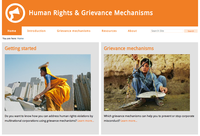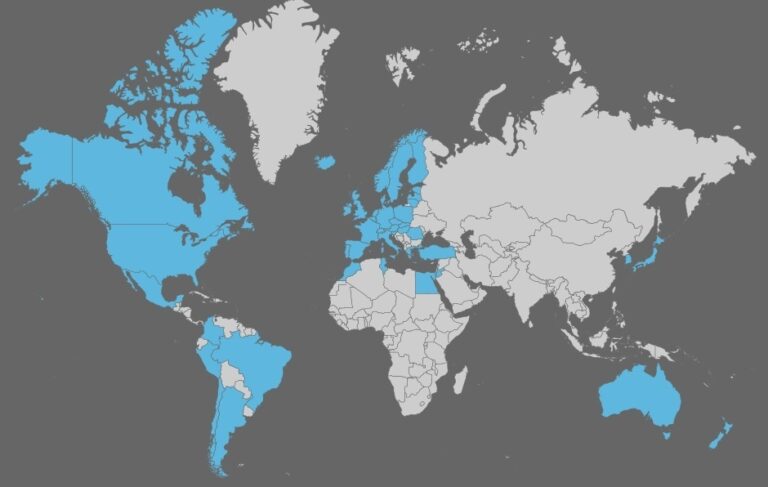
Successful start to training on non-judicial grievance mechanisms
A western mine operator, a South Korean furniture manufacturer and a Japanese producer of musical instruments; these and other multinationals were discussed during a four-day training session in Indonesia on Business, Human Rights & Grievance Mechanisms.

The training specifically focused on the use of non-judicial grievance mechanisms against multinationals involved in human rights violations, intimidation or environmental pollution. It was the first in a series of three sessions with the other two held in Mexico and Kenya.Twenty participants from nine different Asian countries took part in the training session, which took place between 9 and 12 September in Jakarta. All participants have a background in NGOs, other civil society organisations or trade unions and are supporting individuals, workers or communities that suffer or are likely to suffer harm caused by multinationals. For example, because their immediate environment is polluted or because they are forced to leave their homes. The purpose of the training sessions is to provide participants with a better understanding of non-judicial grievance mechanisms and equip them with the practical skills to use them effectively. Participants also receive advice about the specific case they are dealing with.
Functioning and effectiveness are sometimes unclear
Non-judicial grievance mechanisms are formal tools to file complaints about abuses by companies and can be used as an alternative to judicial processes, which are often long and costly. Examples of these mechanisms are the OECD Guidelines for Multinational Enterprises and the Compliance Advisor Ombudsman of the International Finance Corporation (IFC). Human rights defenders are sometimes confused about the functioning and effectiveness of such non-judicial mechanisms. The training sessions in Indonesia, Mexico and Kenya are designed to increase participants’ understanding of them.
Programme positively received
The training sessions consist of a series of interactive modules(opens in new window) , presentations and exercises designed to show participants how to submit non-judicial grievances. The participants described the work they are involved in and their previous experiences with grievance mechanisms and other campaign techniques. In a role play on the OECD Guidelines, participants simulated a conciliation meeting with a company based on their own situation. There were guest speakers from Sawit Watch and the Human Rights Working Group Indonesia. The University of Melbourne and the Accountability Counsel provided expert contributions.
According to Virginia Sandjojo, project coordinator at SOMO and co-initiator, the training was a success. “The participants were well prepared and eager to share their experiences. Often these people have been involved in a specific case for a long time and have tried in various ways to obtain satisfaction. They were very interested in the cases of others and wanted to learn from each other.”
Follow-up
After the training in Indonesia, the participants were very motivated to put their new skills and strategies into practice, says Sandjojo. She will follow up on the participants next months to hear how they are doing. Meanwhile, SOMO will continue to provide advice and support to them. SOMO intends to repeat the training sessions next year so that other organisations can increase their knowledge of non-judicial grievance mechanisms as well.
The HRGM programme
The training in Jakarta was organised in collaboration with Cividep India and Business Watch Indonesia as part of the four-year SOMO programme on Human Rights & Grievance Mechanisms (HRGMs). In Kenya and Mexico, SOMO’s programme partners are the Kenya Human Rights Commission and CEREAL respectively. The programme focuses on increasing the accessibility and effectiveness of non-judicial grievance mechanisms. The training session used new materials, including the website launched in June www.grievancemechanisms.org(opens in new window) . This site carries a video that describes different types of non-judicial grievance mechanisms. It also shows the stages involved in filing a complaint. Users can download brochures with specific information for workers, communities and civil society organisations on various grievance mechanisms.
Do you need more information?
-

Virginia Sandjojo
Senior Policy and Advocacy Officer
Related content
-
-

-
 CNV partners and staff trained on Corporate Accountability & Grievance MechanismsPosted in category:NewsPublished on:
CNV partners and staff trained on Corporate Accountability & Grievance MechanismsPosted in category:NewsPublished on: -

-
Using Grievance Mechanisms Published on:
 Esther de HaanPosted in category:Publication
Esther de HaanPosted in category:Publication Esther de Haan
Esther de Haan

